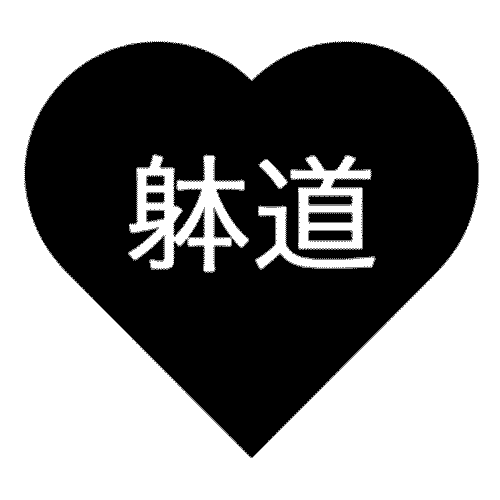This week, I want you to remember to relax. It's probably the most common advice in the world as it can pertain to anything we do in life. Of course, learning to relax can improve your relationships, your health, and your mood. But what we're most interested in here is how relaxation can improve our Taido. Everyone remembers learning to punch. We all started out in the same place: trying to use our arms and shoulders to push our fists forward into the target. As we kept punching, our shoulders inched higher and higher. Eventually, we all learn to relax our shoulders when punching, and we know empirically that it increases speed, power, and accuracy. So why do we carry around so much tension in our other movements? Relax. Everyone says it, everyone forgets to do it.
Awareness
It all starts with becoming aware of tension.
If nothing else, over the next couple of weeks, try to pay attention to the tension in your shoulders during practice. Notice this tension when you punch, when you're standing in chudan kamae, and when you're doing hokei. If you can just be aware of the tension, you can remember to let it go. Make a concerted effort to be aware of any tension you find yourself holding. It may not be in your shoulders. Some people tend to keep a lot of tension in their hips and bellies. Others in their hands.
You'll have to pay attention to figure out where you keep your unnecessary tension. Then, it'll just a be a matter of releasing that tension when you notice it.
Face It
If you've ever watched a kung fu movie or even a video of a Taido practice or tournament, you've probably noticed that strange facial expressions are very common in the martial arts. The truth is that our facial expressions reveal a lot about our internal states. Obviously, we show our emotions on our faces. It works the other way around, too. Smiling actually releases chemical that make us happy.
By the same token, relaxing the muscles of the face signals other parts of the body to relax as well.
If you can, try to get some video of yourself practicing, and notice your own facial expressions. What movements or techniques cause your face to tense up?
You can increase your overall relaxation by periodically relaxing your face during practice. Clench your teeth, then stretch your mouth wide, as if your were yawning. Shut your eyes tight, then relax and blink a few times. Relax your jaw and shake your head vigorously from side to side with a deep exhale. All of these things can help loosen your facial muscles and relieve general tension.
Techniques
There are lots of things you can do the help yourself relax, the most basic being to simply LET GO. For some people, this will be a significant process that is more psychological and physiological. For others, it might just mean bouncing up and down a few times while shaking the tension out of your arms and legs.
Figure out what works for you and start reminding yourself periodically during training to relax.
